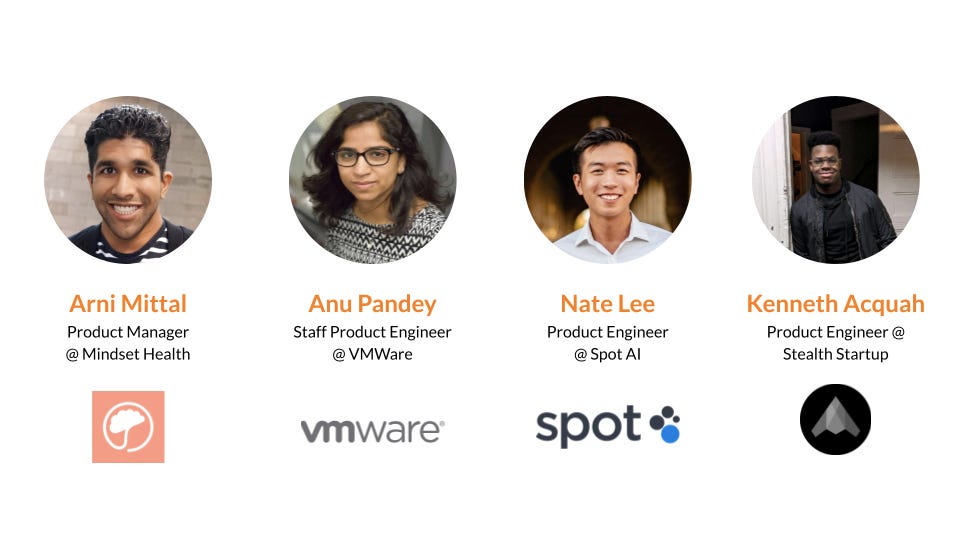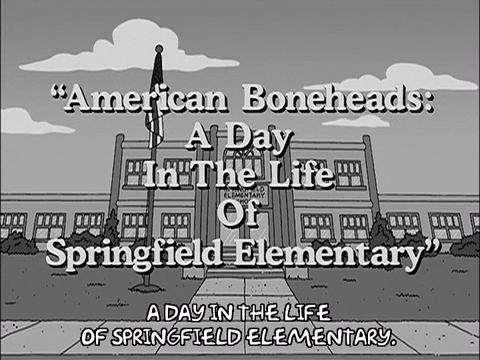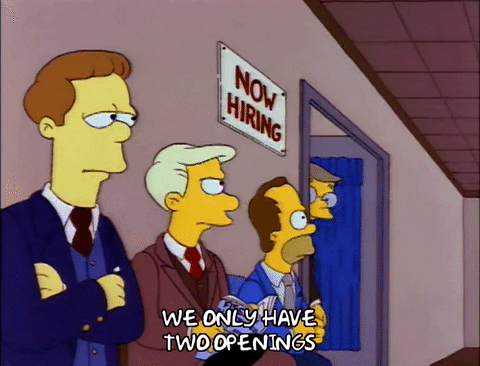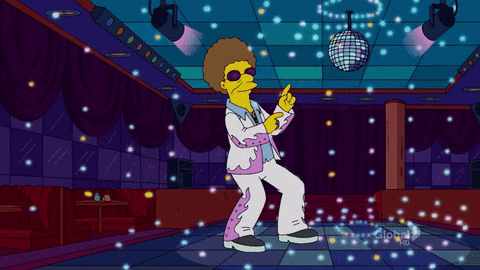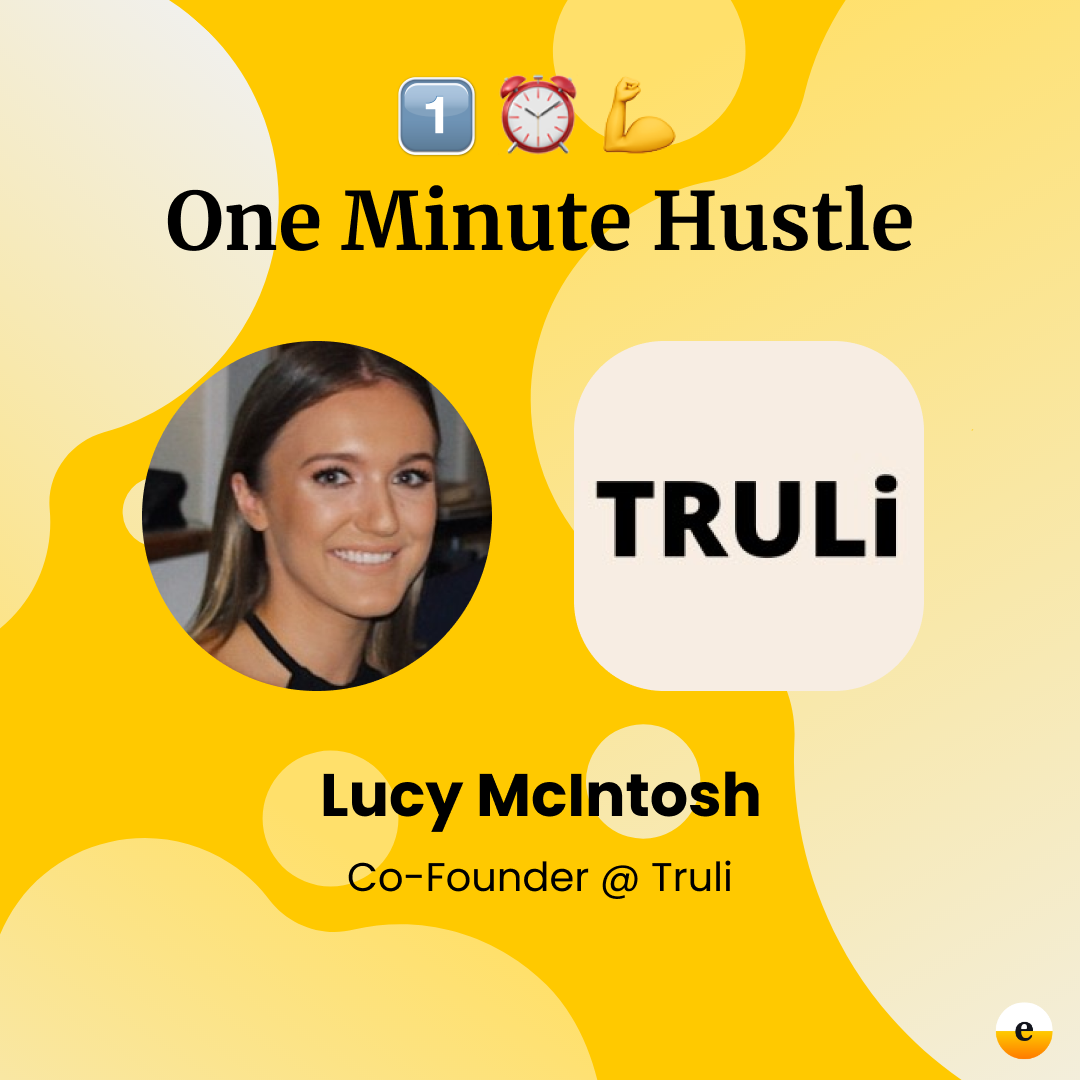Earlywork #39: WTF is Product Engineering?
Featuring interviews with Anu Pandey (Staff Product Engineer @ VMWare), Nate Lee (Product Engineer @ Spot AI), Arni Mittal (PM @ Mindset Health) & Kenneth Acquah (Product Engineer @ Stealth Startup)
Ello ello Earlyworkers!
Sliding in your DMs is Earlywork #39, a careers newsletter providing free career resources, news, jobs & interviews for young Australians in the tech & startup landscape.
If you’re not already part of the crew, subscribe now to keep a pulse on our latest stories and conversations:
💡Weekly Cheeky Tip
When a new field or technology emerges, with time, a new role is born.
I’d make a fairly confident bet that for most of you reading, your parents aren’t product managers, data scientists, UX designers, or growth marketers, and yet, these titles are part and parcel of building a leading tech company today.
And as industries grow, roles can morph or coalesce, as we begin to realise our original role definitions don’t quite fit the best way to build products.
Looking at the software industry more broadly, there is one role shift that I’m particularly curious about.
The emergence of product engineers.
What do they actually do? Closer to product management or software engineering? Is it a role or a mindset? Should all software engineers be product engineers?
Real talk, I swear I see this title more in VC twitter threads than in real life.
And for me, I find the collation of real human stories often more accurately captures a role than a high-level conceptual piece.
That’s why I decided to speak with 4 different current or former product engineers to get a sense of WTF product engineers actually do.
Overall, what’s fascinating is that between these 4, the role still looks quite different depending on the company.
Evidently, a role still in its early evolutionary stages.
Let’s meet the gang and deep dive into how they see the field of product engineering…
🧠 Arni Mittal is a Product Manager (former Product Engineer) at Mindset Health, a growth-stage healthtech startup focused on using hypnosis to manage chronic and other health conditions. Previously @ Atlassian, Arup.
☁️ Anu Pandey is a Staff Product Engineer at leading cloud computing company VMware. Previously @ ServiceNSW, Westpac.
📹 Nate Lee is a Product Engineer at Spot AI, a growth-stage AI startup and Forbes Cloud 100 Rising Star building AI-enabled security cameras. Previously @ Facebook, Lark Health.
🕵️♂️ Kenneth Acquah is a Product Engineer at a stealth startup. Previously @ Convoy, IBM, Microsoft, Google, Nasdaq, Visa.
📝 How would you define product engineering?
💡 Key takeaway: Broadly, product engineering sits at the intersection of the ‘what & why’ from product management and the ‘how’ from engineering, whether it is a separate role or a mindset for engineers.
🧠 Arni: “I view product engineering as a subset of software engineering, it is more an approach that can be adopted by any developer - some organisations however do hire product engineers to focus on their new ventures.
Product engineers are great at shipping 0 to 1 products, working across the entire product life cycle from ideation to go-to-market efforts.
They balance the art of shipping features quickly with engineering quality so they can learn and iterate fast while considering the long-term impact.
Product engineers often balance focusing on the “why” rather than just the “how”, and are passionate about using technology to solve user problems in ways others may have not imagined before.”
☁️ Anu: “Product Engineering establishes the viability of the product and centres on building the product in the best and simplest way.
Whilst software engineering mostly converges on converting the requirements into lines of code, product engineering helps carve those requirements.
And whilst, product management focuses on what is the right product to build, product engineering focuses on building it the right way.
It spans the entire lifespan of the product including the path to production, and product engineers work in lockstep with product managers and help shape the product piece by piece.”
📹 Nate: “PMs listen to user pain points to drive feature roadmaps (what and why), while engineers take roadmaps and figure out architecturally how to code the thing out.
The problem is, while each function tries to figure out the what/why and how, customer feedback loops are slow.
This is where product engineers can help.
Product engineers are constantly adapting to customer feedback flywheels, building things rapidly and talking to/ testing with customers for user stories and pain points.
That feedback is then put right into the next build sprint, where after testing gives deeper insights on product directions.”
🕵️♂️ Kenneth: “Product engineering typically involves hybrid work from product management and software engineering.
At a high level, in planning features, many engineering organisations will write a product requirements document (evaluation & strategy of feature) and an engineering requirements document (technical details of feature).
These are typically handled respectively by product managers and software engineers, but at smaller companies, product engineers might assume both responsibilities: evaluation, strategy, planning, scoping, and engineering design are all handled by the same role.”
📅 What does a typical working day look like for a product engineer?
💡 Key takeaway: The bulk of the work still tends to be software development, but there is a key focus on prioritising different features and sub-features based on customer value and fleshing out high-level user stories into deeper details to reduce ambiguity.
🧠 Arni: “Product engineers are often working on the most value-adding features and pathways for users, rather than just converting requirements to code and attempting to account for every single edge case.
They often pick up stories with lots of unknowns and deliver measurable outcomes - while being comfortable with ambiguity and work closely with designers, PMs and founders.
They are also very involved in sprint planning, ensuring that key value-add to users is understood over just a set of requirements.
They are looking to simplify solutions, negotiate scope and present trade-offs simply to the rest of the team.
They are also likely to be running experiments, sharing learnings and providing suggestions to stakeholders.
☁️ Anu: “A regular day for a product engineer focuses on delivering the next most important outcome to achieve the milestone.
It starts with picking up the story/card from a prioritised backlog followed up with a quick conversation with the product manager to iron out any questions, clarify scope, point out any technical limitations and collaborate with the product designer if required.
Most of the day is spent on the development of the story in the simplest possible design.
A typical day also includes regular checkups with the PM during the story development for any follow-up questions, negotiating story scope, uncovered issues etc.
We also work with the product manager to prioritise technical tasks.”
📹 Nate: “I honestly think there is no typical working day for product engineers, at least not at startups.
To be more helpful, sometimes I’m writing PRDs, sometimes I’m writing code, sometimes I’m testing with internal users/customers, sometimes I’m revving UI/UX and technical designs with the designers and peer engineers.
It really depends on what stage of feedback we need on a specific customer pinpoint or how much we don’t know about a new feature set.”
🕵️♂️ Kenneth: “Most of the day is engineering e.g. software development, writing up documentation.
At a very early stage company, it's crucial to spend most of your time shipping features.
Around 20% of the time, we do more product-oriented work.
This consists of analyzing metrics, designing UX flows, identifying product opportunities, project management, and talking to users.”
🔍 How did you find your first product engineering role?
💡 Key takeaway: Product engineers tend to have previously been software engineers with a strong curiosity for customers, and smaller startups make it easier to get this breadth in a software engineering role.
🧠 Arni: “I helped Mindset Health launch its first cross-platform application while still at uni; I was introduced to the founders by a friend prior to them raising their pre-seed round.
They were looking to develop cross-platform apps fast and my experience doing this previously in my part-time role as a software engineer for around 3 years led to a good fit.
I would recommend talking to founders, leadership at startups, and larger organisations spinning up new product areas.
These teams often benefit from product engineers and their approach to creating products.”
☁️ Anu: “I transitioned from what one could consider a software engineer to a product engineer 4 years ago.
I was increasingly finding myself in a state of mind where the traditional setup wasn’t working. In the traditional software engineering cycle, by the time the engineers are involved, the scope and requirements are usually locked down.
The new way of working closely with product managers and designers and being part of the whole process was a refreshing change.
I felt much more involved in the entire process and had a sense of ownership of the product.”
📹 Nate: “Though I was half decent at engineering, I really wanted to learn to think more critically about the implications of the things I was building, including both empowering customers and doing it in a way that mitigates unintended bad things happening.
As for the actual role, I just got really lucky. I was the third employee and I knew the CEO when he was in business school.
We had a really strong mentor-mentee relationship — when it made sense and our goals aligned we decided to work together.”
🕵️♂️ Kenneth: “Very early stage start-ups typically offer product engineering roles. With a small engineering team, it is often much easier to ship features when engineers own product management themselves.
I was looking for software engineering roles at very early stage companies, and looking mainly at product engineering roles.”
🎨 What are the most important skills for a product engineer?
💡 Key takeaway: The core themes from this group tended to be a strong focus on customer value, the ability to prioritise and make tough tradeoffs, and an iterative mindset.
🧠 Arni:
Ownership mindset:
Strong intuition and opinions backed by data
Identify and execute on low hanging fruits
Take decisions, ask for forgiveness > permission
Ability to balance rapid iteration vs software quality
Focus on the most impactful user path rather than every single edge case
Take the YAGNI (you ain’t going to need it) approach
Get products out and iterate fast based on learnings with low “ego”
Advocate for users
Creator of amazing experiences
High empathy, ability to consider the entire user journey
Interested in user’s experience
☁️ Anu:
Move away from delivering on requirements to delivering value to customers.
Lean engineering practices
Provide the feasibility and cost input to the PM to help them make decisions
Focus on small code commits
Maintain the balance between functional and technical stories all the while delivering value.
📹 Nate:
Cling to the customer’s voice: Your job isn't to stroke your ego on what you believe customers want, but to actually show something and have the humility to learn from them.”
“Ruthlessly descope and de-risk: Engineers cringe when something isn't perfect, but your conception of “perfect” is likely highly flawed anyway. Focus on point 1 and ship something (anything!) - see how it’s used by an end user.
Relish in being incorrect: The more incorrect you realize you are with customers, the stronger the signal to noise the feedback is, and the more correct you can be in the long run with the product.
🕵️♂️ Kenneth:
Attention to detail is probably the biggest skill. A lot of folks talk about how attention to detail when designing solutions is a key skill for successful engineers, but this is only more crucial when you're working in a role that is also responsible for business success of the solution you build, and whether or not it sufficiently meets the needs of customers.
“Measuring what matters" and paying close attention to it is another key skill for any product engineers.
…
Hopefully now, next time someone drops the ‘product engineering’ buzzword in a conversation, you can nod along in confidence (or call them out on their bullshit 😂).
If you’re keen to dive deeper on how product engineers work with product managers, here’s an awesome piece from Sherif Mansour (Distinguished PM @ Atlassian) covering the topic.
What content would you like us to cover next? Anything we missed? Keen to share your own Weekly Cheeky Tip?
🌏 Earlywork Community
📚 Trending Topics
Our favourite reads and resources being discussed in the Earlywork community.
How Carted raised one of Australia’s largest seed rounds: A peek behind the curtains of the strategy and tactics Carted used to land its $13M seed round (TEN13 Ventures)
Sushi and the Founding Murder: A deep dive into how Sushiswap survived its founder suddenly taking $14M of ETH out of the dev fund (The Generalist)
How startup capital raising actually works: A solid article that digs into the granular steps of what it takes Aussie startups to land investments (Australian Financial Review)
Canva Raises At $40B Valuation - Its Founders Are Pledging Away Most Of Their Wealth: Headline news already, but can’t go without mentioning Canva’s monster raise with a philanthropic bent (Forbes)
How To Angel Invest: A panel-based discussion on the fundamentals of angel investing with Kylie Frazer (Co-Founder @ Flying Fox Ventures), Rayn Ong (Venture Partner @ Archangel Ventures) and Marvin Liao (Partner @ Gamegroove Capital) (Textbook Ventures)
💼 Top Gigs
Some of our favourite roles shared in the community recently. Join here to access our job channels.
1. Junior Full Stack Developer @ Nexus Notes (Remote). Apply via email.
2. Marketing & Community Associate @ Folklore Ventures (Sydney)
3. Investment Associate/Analyst @ Jelix Ventures (Sydney)
4. Frontend Developer @ Cape (Sydney / Remote)
5. Operations Intern @ DiDi (Melbourne)
If you’re not already a member, hop on over to join in on discussions with other young Aussies in tech & startups, stay up to date with industry news & events, and find/share job opportunities.
Keen to have an opportunity at your company shared with the Earlywork community?
1️⃣ 🕐 💪 One Minute Hustle
We are back once again with One Minute Hustle, a bite-sized interview with an emerging Australian young startup founder or operator.
This week, let’s get inside the noggin of a uni student tackling the problem space of sexual wellbeing…
Lucy McIntosh, Co-Founder @ Truli
⚙️ What are you working on?
I am working on a sex-tech start-up with my two other co-founders (Sisi Hu and Calvin Li) that aims to inspire women to feel more confident in their sexual wellbeing journey.
For us, this looks like:
1. Offering a safe, inclusive, non-overwhelming and non-pretentious space for women to purchase high-quality, affordable, innovative, and satisfying sex toys.
2. Providing thought leadership that goes beyond the often didactic, run-of-the-mill content to address the nuances of women’s sexual wellbeing.
3. Creating an arena for women to share and discuss with other women any topic relating to sexual wellbeing.
We are on track to launch with our first product towards the end of this year.
🌱 How’d you get started?
I met Sisi earlier this year through UNSW Founders’ New Wave Program, which is a fortnight long intensive program aimed at women who are interested in entrepreneurship.
I had no prior experience in the space and really didn’t know what to expect from the Program, but I was luckily enough to be paired with Sisi who had previously worked on the idea with Calvin.
One of our first tasks was to interview over 100 women to discover the pain points they experience when it comes to their own sexual wellbeing.
I think the sheer honesty and vulnerability expressed by women in their responses, along with receiving the Judges Choice Award for our idea, gave us the confidence we needed to go ahead and further validate our offering.
🤔 Why do you do what you do?
Sex-tech is still a largely untapped industry, but by 2023 it’s estimated to be worth $37.2 billion dollars.
The fact that many women continue to experience a degree of shame and stigma that men quite frankly don’t when it comes to not only talking openly about sexual pleasure but merely enjoying it too is disappointing.
Since conducting the market research, the harsh reality that women face has become so much more apparent to me and I feel as though I’m now obliged to find a solution, or at the very least be a part of the change that allows women to feel more confident in their sexual wellbeing.
—
Keen to share your story, or know a young startup founder or operator we should feature next?
Share your deets and we’ll get in touch!



